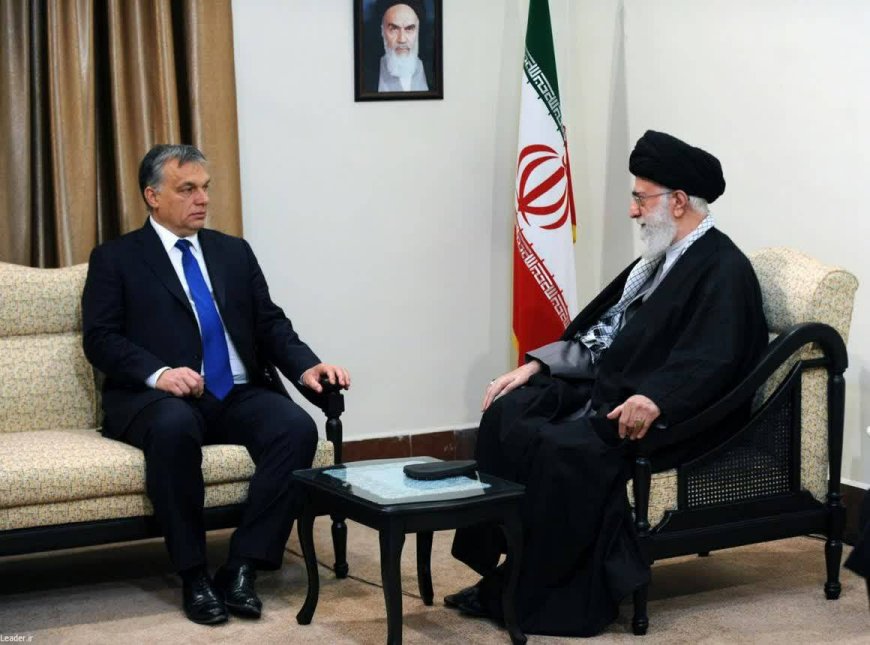Iran-Hungary Relations: A Century of Delicate Diplomacy
In the realm of international relations, the recent discourse between Iran and Hungary, as articulated by the Iranian Foreign Minister in a meeting with his Hungarian counterpart in Tehran, underscores the trajectory of diplomatic ties between the two nations. This diplomatic juncture, marked by the assertion that relations are "on the right track," serves as a testament to Iran's conscientious cultivation of a respectful and enduring rapport with Hungary.

The roots of Iranian-Hungarian relations, spanning almost a century, have weathered numerous storms, marked by political vicissitudes and divergences. Despite these challenges, a persistent undercurrent of mutual respect and understanding has defined this longstanding association. The historic milestone of 1952 witnessed the inception of a trade agreement post-Second World War, laying the foundation for subsequent bilateral exchanges over the ensuing years.
While economic and political relations have experienced undulations since that period, a stabilizing force of mutual understanding has perennially characterized the ties between Iran and Hungary. The two nations have exhibited a strategic acumen in identifying areas of shared interest, forging economic, cultural, and agricultural treaties, and fostering a framework for heightened collaboration. This commitment to mutual engagement has seen a noteworthy expansion since 2018, as the countries explore untapped potentials.
In the most recent ministerial dialogue, a testament to this collaborative spirit, pivotal strategic cooperation documents were inked between the foreign ministers of Hungary and Iran's Minister of Economy. These documents lay the groundwork for expansive collaboration in sectors such as agriculture, engineering, and water management, heralding a promising phase in their multifaceted relationship.
However, the significance of this meeting transcends the bilateral context and intersects with regional dynamics, particularly the Gaza war. Hungary emerges as a consequential ally and partner of Israel in Europe, a fact underscored by the Hungarian foreign minister's acknowledgment of seeking a diplomatic solution to the Gaza conflict while maintaining strategic ties with Israel. In essence, Hungary endeavors to bridge the divide between Iran and Europe, assuming the role of a mediator and mitigating escalating tensions.
The Hungarian government, drawing from its successful experience in mediating tensions between Europe and Russia, aspires to facilitate dialogue and foster convergence between Iran and Israel. This diplomatic endeavor positions Hungary as a pivotal player in reshaping the international system.
Economically, Hungary seeks to leverage its relations with both Iran and Israel for its economic benefit. Given its influence on the Yemeni Ansarullah movement, Tehran can offer commercial security for Hungary's maritime trade in Bab al-Mandeb. Simultaneously, Hungary, a member of the European Union and the Schengen area, envisions itself as a facilitator for Iran in matters of exporting and importing various products.
Hungary's commitment to non-sanctioned areas of cooperation is not only rooted in economic interest but also aligned with its stance on human rights. In emphasizing the necessity of trade in these areas, Hungary provides Iran an invaluable opportunity to gain expertise in agriculture and water resource management, advancing shared knowledge in these critical fields.
In essence, the nuanced framework of Iran-Hungary relations presents a symbiotic opportunity for both nations. Hungary, positioned as a reliable mediator, holds the potential to navigate the complexities of tension with Israel, while concurrently fostering economic collaboration. This approach, founded on a realistic foreign policy outlook, might well pave the way for the facilitation of ceasefires and expedited negotiations in the ongoing Gaza conflict. As the diplomatic dance between Viktor Orbán and Netanyahu unfolds, there is an optimistic prospect for the region to pivot towards lasting peace and stability.













































